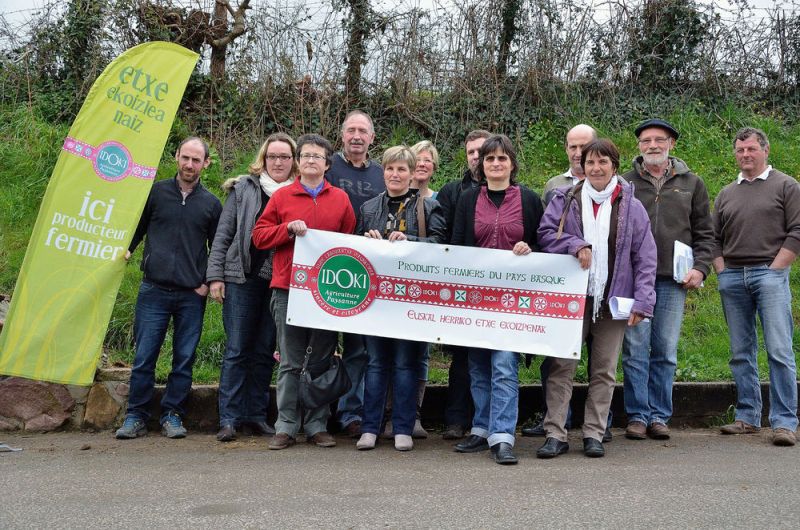

“The production house works in its own corner: it only makes raw material, only transforms it and sells it. The first need to create a partnership was to get together, to get the producer to know each other and to get out of that loneliness.” Idoki’s worker, Isabela Zabalx, explained the beginnings of the Association of Producers of Houses of the Basque Country (EH EVE). The association was launched in 1989 by farmers of Ipar Euskal Herria and in 1992 the production of quality Idoki was created, with the objective of valuing and disseminating the production of the farm. Currently there are about 90 farms framed in quality.
Sustainable agriculture in small and medium-sized farms
Idoki’s quality is based on the principles of sustainable agriculture. The brand includes products made from small and medium-sized farms, and farms must meet the minimum requirements so that producers can only use their raw materials, prioritise direct sales and short marketing circuits, keep animals in perfect condition or use quality components in domestic productions (e.g. colours and glasses are prohibited).
After the reflection of the last two years, they have decided to tighten the regulations and take further steps forward: By 2027 all farms have decided that their practices do not have any kind of chemical substance. “We are in a transitional phase: we have defined the working axes for the next 3, 6 and 9 years. Each farm will choose where to start.” The partnership will monitor this phase of ecological transition, set up working groups and exchange and training between different farms.

Markets and collective initiatives
Idoki, far from being a mere brand, carries out numerous activities throughout the year. “With the markets and events we organize, we want the year to come up a little bit,” says the worker. For example, the Ezpeleta Idoki Fair celebrates its 20th anniversary on August 10.
Collective initiatives among farmers have also been promoted in recent years: This is the case of the collective meat processing centre in Xuhito, but also of the collective selling centres that farmers have developed. The association of producers of houses has contributed to the structuring and development of these spaces. “When you’re small, you can only do it collectively. It takes longer, it may be more difficult, but after all, it is almost the only chance to go ahead.”